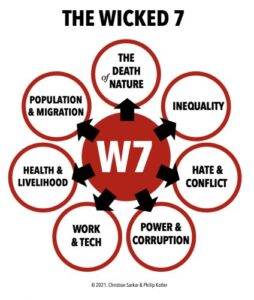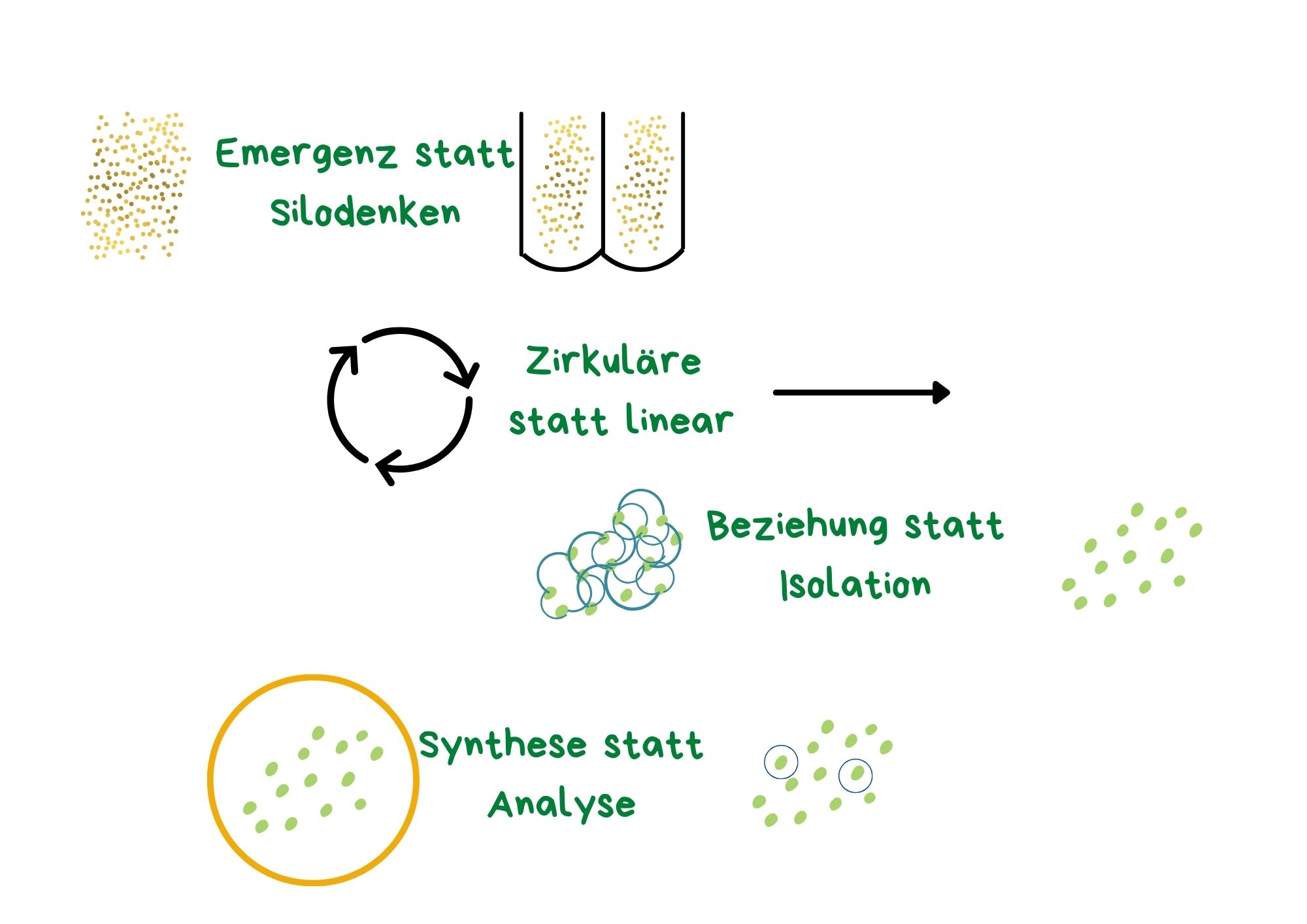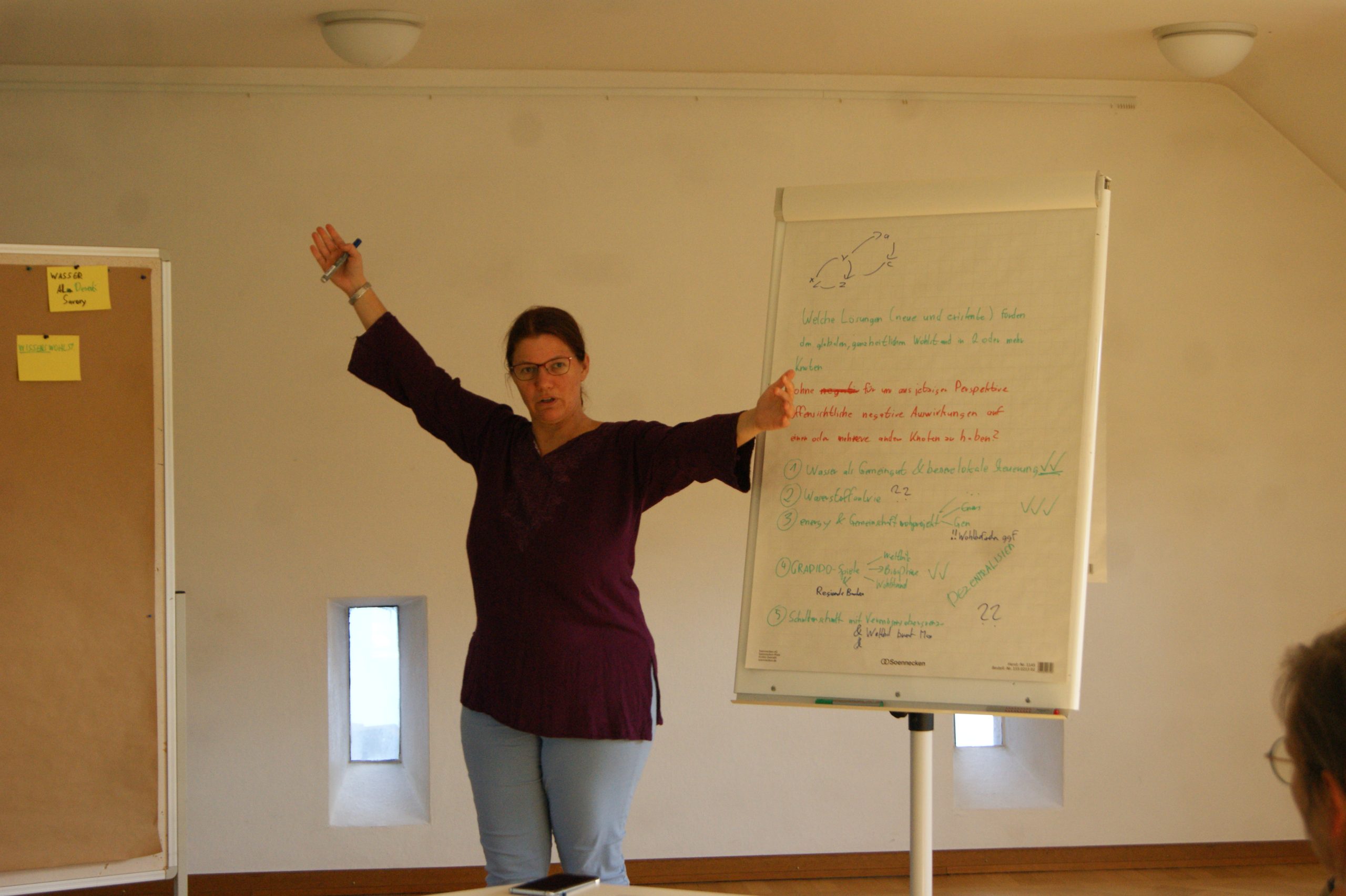An eye for the big picture
Many people who become socially involved start with a clear cause. An issue that moves them. A problem they want to tackle. But the deeper they get involved, the clearer it becomes: It doesn’t stop at this one problem. Everything is interconnected. Systemic thinking for changemakers helps to make sense of this confusion.
Anyone committed to preserving biodiversity, for example, quickly comes up against climate change. This in turn is closely linked to water cycles, which are endangered by construction and infrastructure projects. These in turn are linked to tourism, economic policy and global consumer habits. The interdependencies increase the deeper you look.
The result: excessive demands. Disorientation. Frittering away.
But there is a way of thinking that does not get lost in this complexity, but finds orientation in it: systemic thinking.
Why systemic thinking is so important today

Systemic thinking means recognizing connections, understanding patterns and looking at the big picture. It’s not about simplifying everything – it’s about allowing the right complexity to make smarter decisions.
A powerful framework for this is The Wicked7 project. It identifies seven fundamental, interlinked problem areas that are involved in many social challenges:
- The death of nature
- Inequality
- Hate and conflict
- Abuse of power and corruption
- Work and technology
- Health and livelihoods
- Population and migration
These problems are not independent of each other – they are mutually dependent. If you focus on one of these fields, you will almost always encounter the others. And this is precisely why systemic thinking is so essential.
How does systemic thinking differ from classical thinking?
In traditional problem-solving approaches, the logic is usually linear: a problem is identified, a cause is named and a solution is developed. However, this is not enough for complex social and ecological challenges. A different way of thinking is required here.
Systemic thinking differs primarily in four central points:
1. emergence instead of silo thinking
Systems develop together. An education system influences an economic system. A health crisis affects political stability. The separation into individual systems is often artificial.
2. cycles instead of chains
Impact is not linear. Those who are informed pass on knowledge. Individual impulses develop into feedback loops that can set entire systems in motion.
3. relationships rather than individual pieces of information
It is not individual facts but the relationships between them that are decisive: How does poverty affect mental health? What is the link between access to education and climate awareness?
4. synthesis instead of analysis
Systemic thinking asks: How is the system as a whole doing? What dynamics are emerging? Looking at the whole comes to the fore – not breaking it down into parts.
What are the benefits of systemic thinking for changemakers?
Systemic thinking is not a theoretical extra – but a valuable tool for anyone interested in sustainable change. This way of thinking can be an enormous relief, especially for changemakers who are faced with complex challenges.
It helps you to sharpen your own focus and use resources in a more targeted way. It makes it possible to think outside the box without getting lost in the diversity. And it makes it clear that many challenges have common roots – and therefore also common solutions.
I am not alone.
I don’t have to solve everything.
But I can make a real difference – where my actions have a leverage effect.
This attitude not only creates more effectiveness – it also takes the pressure off. Because those who think systemically recognize their role in the larger context and can decide more consciously where commitment has the greatest impact.
Conclusion: Systemic thinking as a key competence for changemakers
Systemic thinking is a key skill for social transformation. It does not replace action – but it makes it more intelligent, more networked and more effective in the long term.
In a world full of complexity and uncertainty, we need people who see the big picture – and act clearly and courageously within it.
Would you like to improve your own systemic thinking skills?
Strategies for deep change
Reserve your place now for the free workshop at the beginning of May and learn about the tools of systemic thinking – and how they can help you to multiply your impact.


